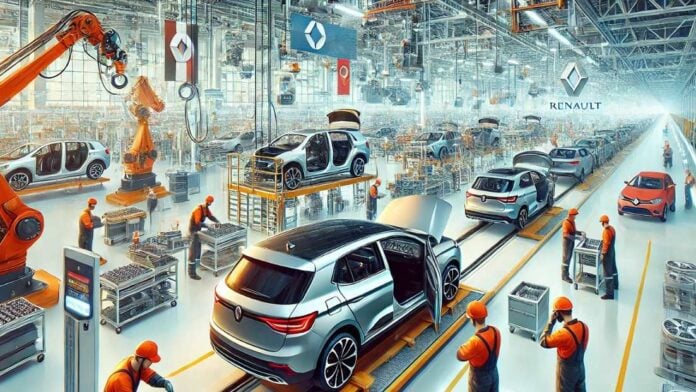The automotive sector in the Maghreb has proven itself as a strategic pillar of the regional economy by combining major industrial, economic, and social challenges. This dynamic sector, supported by a robust industrial infrastructure and an ambitious strategic vision, now positions the region as a key player in both the African and Mediterranean markets.
Tunisia and Morocco played a pioneering role in establishing the first automotive assembly lines in the Maghreb in the early 1960s. Algeria, on the other hand, adopted a state-led approach to industrial development by forming strategic partnerships with major manufacturers like Renault and Fiat. This period was marked by the production of iconic models adapted to local needs and conditions, including the Renault 12 in Algeria.
The 2000s marked a decisive turning point with the influx of foreign investment. This new dynamic was encouraged by the introduction of attractive tax incentives, the availability of skilled labor at competitive costs, and the development of specialized industrial zones. During this period, comprehensive automotive ecosystems supported by international strategic partnerships emerged, transforming the region’s industrial landscape.
Current Industry Landscape
Morocco continues to lead the sector, with a record production of 750,000 vehicles in 2023, based on the strategic port center of Tangier Med. The Kingdom benefits from the presence of major manufacturers like Renault-Dacia in Casablanca and Tangiers, as well as Stellantis in Kenitra. The country is aiming for a production target of 614,000 vehicles in 2024, surpassing South Africa and confirming its leadership on the continent. Projections indicate an even more ambitious target of 1.09 million vehicles by 2033, showcasing investors’ confidence in Morocco’s potential.
Algeria is experiencing a significant revival in the automotive industry. The opening of the new Fiat factory in Oran in October 2024 marks an important milestone, with a target production of 90,000 vehicles annually by 2025. The arrival of Chinese manufacturer Chery, the first beneficiary of the new regulatory framework for passenger and light commercial vehicle production, highlights the renewed attractiveness of the Algerian market. The country is also positioning itself in the electric vehicle segment, demonstrating its ambitions for the future of mobility.
Tunisia has developed expertise in the production of automotive components, becoming a key supplier for the European market. The country distinguishes itself by developing innovative solutions for sustainable mobility, driven by a dynamic ecosystem of technology startups. This expertise allows Tunisia to position itself in the high-value-added segments of the automotive production chain.
Challenges and Expectations for the Future
The Maghreb automotive sector faces intense competition from Asia, particularly China, which requires constant adaptation of industrial strategies. The transition to electric mobility remains a major challenge, hindered by limited charging infrastructure. The sector’s development is also confronted with the increasing demand for a skilled workforce, requiring significant investments in vocational training.
Nevertheless, the future of the sector looks promising, driven by ambitious targets. Morocco aims to produce one million vehicles annually by 2030, while Algeria holds a strategic position in the green mobility market. Finally, Tunisia continues to advance in the field of advanced automotive components, strengthening its development in cutting-edge technologies. The region’s increasing integration into global value chains is therefore creating new opportunities for growth and innovation.
For half a century, the Maghreb automotive sector has demonstrated its capacity for development. Ongoing investments, strategic partnerships, and adaptation to new technological trends position the region as a future nerve center of the global automotive industry. Its commitment to sustainable energy transitions and continuous innovation strengthens this promising trajectory, making the Maghreb a key player in the automotive industry of tomorrow.












